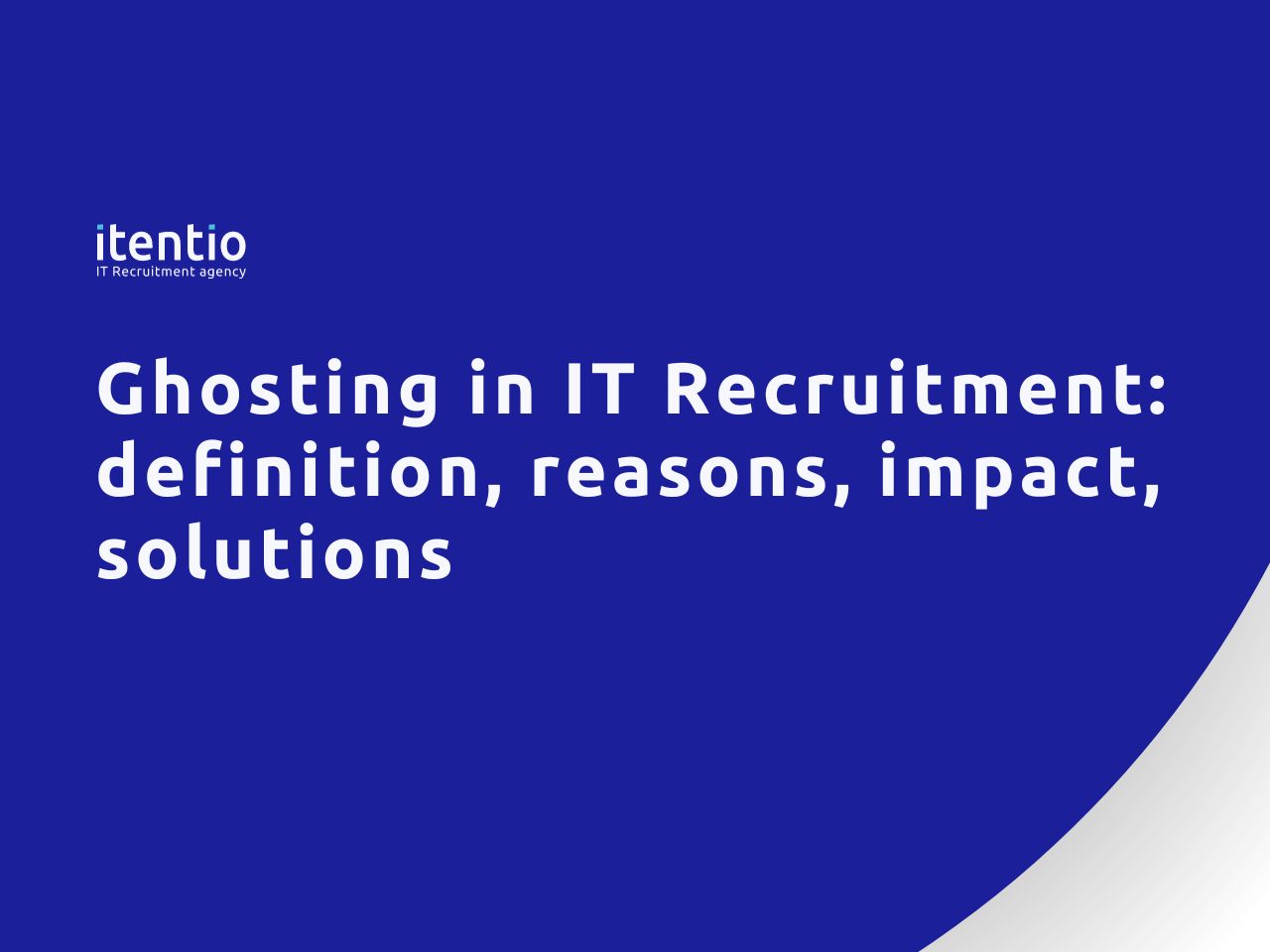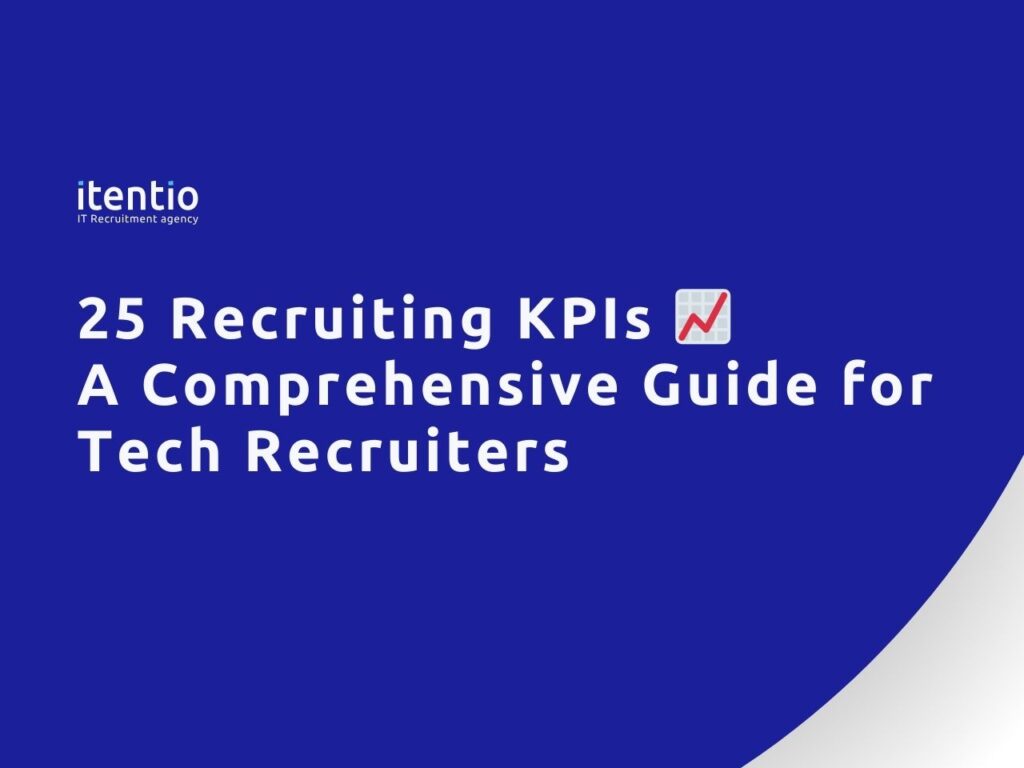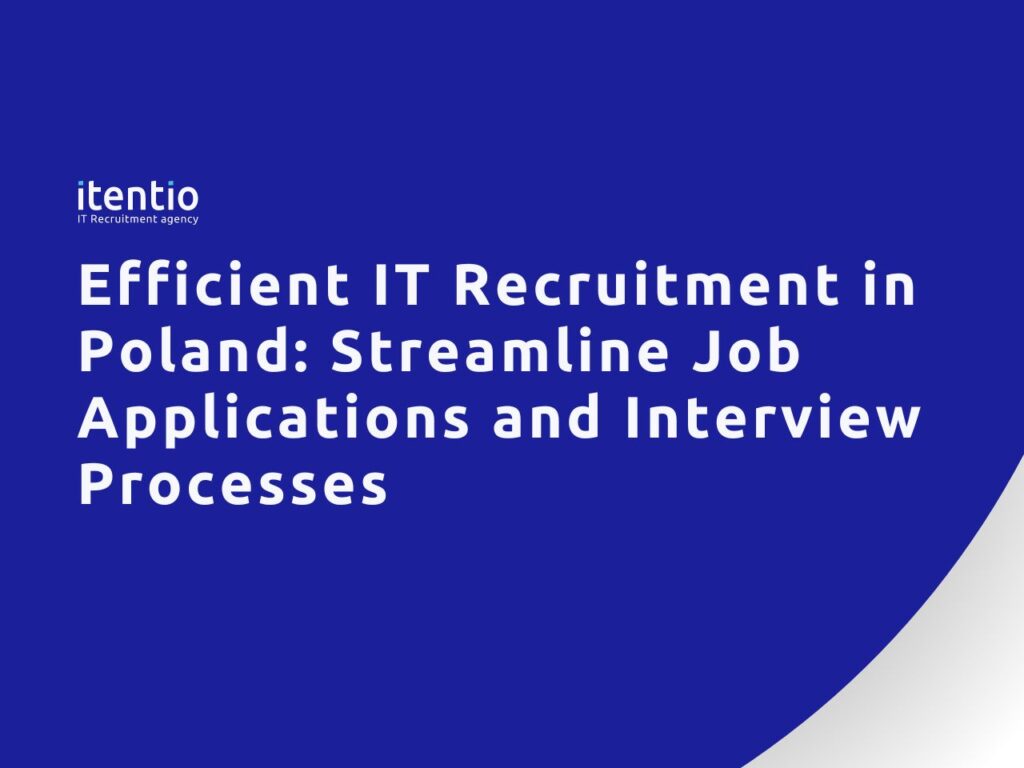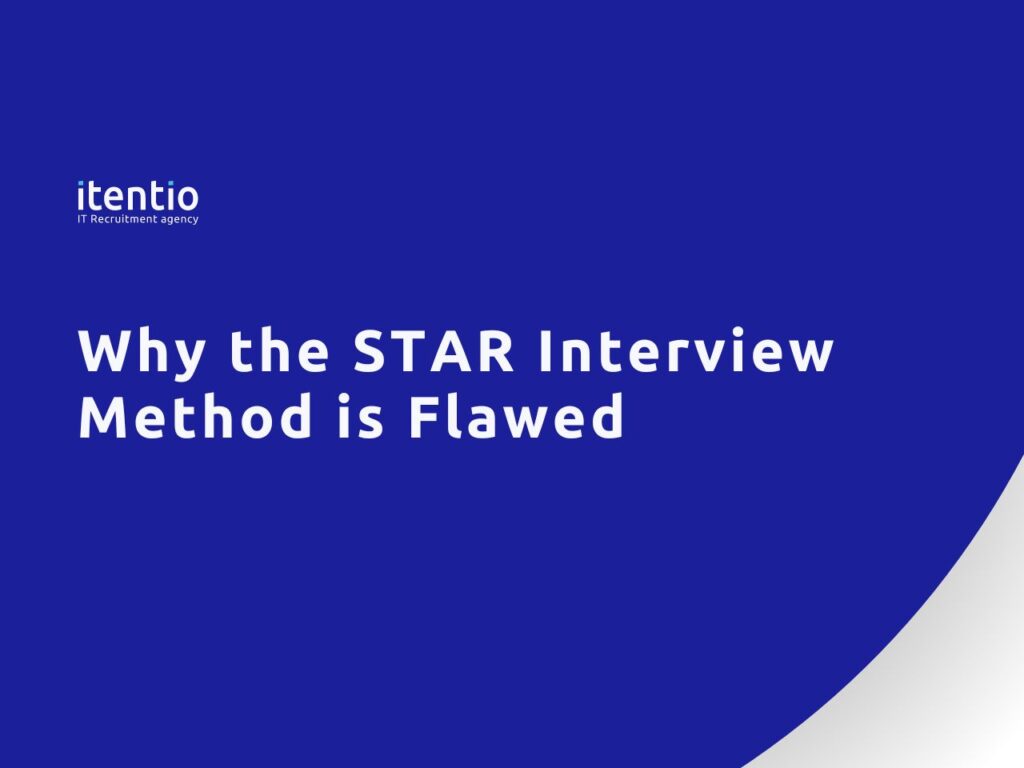In today’s competitive job market, ghosting has become a prevalent issue both job seekers and employers face during IT recruitment. Ghosting refers to abruptly cutting off all communication without any explanation or warning. It can happen at various stages of the hiring process, including initial interviews, follow-up discussions, or even after a job offer has been extended or accepted. This article explores the phenomenon of ghosting in IT recruitment, its impact on both parties involved, and potential solutions to mitigate its effects.
Introduction
Ghosting in IT recruitment has become a significant concern for employers and job seekers. It creates frustration, uncertainty, and a negative experience for all parties involved. In this article, we will delve into the causes of ghosting, its impact on employers and job seekers, and explore strategies to reduce ghosting occurrences during IT recruitment.
Definition of ghosting in IT recruitment and its causes
Ghosting in IT recruitment refers to the sudden cessation of communication by the job seeker or the employer during the hiring process. It can happen after an initial interview, during salary negotiations, or even after extending or accepting a job offer.
Typical scenarios where ghosting in IT Recruitment occurs are the following:
- When a candidate stops responding to emails or calls after an interview;
- When an employer fails to provide updates or feedback to a candidate after the following step of the interview;
- When a candidate accepts a job offer and then backs out without giving any notice;
- When an employer withdraws a job offer without any explanation;
- When a candidate ignores a job offer and doesn’t respond at all.
Ghosting can occur due to a range of reasons. Still, it usually happens when communication breaks, lacks transparency, or either side’s priorities change.
Reasons Behind Ghosting in IT Recruitment: Why Does it Happen?
Let’s consider the main reasons why ghosting happens. There are several main categories of reasons, within which both parties can have plenty of sub-causes for ghosting.
a) Lack of Communication and Transparency.
One of the primary reasons for ghosting is the need for more transparent and consistent communication between employers and job seekers. When there is a lack of updates or feedback from the employer, candidates may lose interest or assume they are no longer being considered for the position. Similarly, job seekers should respond to employers’ inquiries or interview requests to avoid frustration and confusion.
Such ghosting can appear if some employers or candidates ghost another party due to a lack of proper communication skills or professionalism. In our opinion, both parties should provide information in case of losing interest in another party during the recruitment process after further consideration or evaluation.
b) Competitive Job Market
In a highly competitive job market, job seekers often have multiple opportunities. This abundance of choices can increase the likelihood of ghosting, as candidates may prioritize other offers, find another option they prefer more, or lose interest in a particular vacancy without explanation. In some cases, candidates may ghost because they feel overwhelmed or unsure about the decision to accept a job offer.
The same appears for the recruiters of the company. Due to the overwhelming quantity of applications, sometimes recruiters might not intentionally ghost candidates. Some employers may ghost candidates because they found a more suitable candidate for the vacancy.
c) Unattractive Job Offers or internal changes in hiring
Job seekers may also ghost employers if they receive unattractive job offers. Factors such as low salary, poor benefits, or unfavourable working conditions can make candidates lose interest and opt not to communicate their decision formally. Candidates may also ghost if they have had a negative experience during the recruitment process and feel they need to be more valued by the potential employer. Employers may also ghost candidates if there is a sudden change in the company’s hiring plans or the position becomes unavailable.
d) Cultural factors influencing ghosting behaviour
Cultural norms and expectations around communication and professional etiquette may contribute to ghosting behaviour. In some cultures, it may be more acceptable to abruptly end communication without providing an explanation or closure.
Additionally, the prevalence of technology and the ease of digital communication make it easier for individuals to ghost without needing to explain. Lastly, the anonymity and distance created by online job applications and remote hiring processes may make it easier for individuals to ghost without feeling a personal connection or sense of responsibility.
Understanding these groups of factors can help employers create strategies to address and prevent ghosts.
Impact of ghosting in IT recruitment on the hiring process
a) For Employers: Damage to Employer Reputation
Ghosting can have detrimental effects on employers. From the employer’s perspective, ghosting in recruitment leads to wasted time and resources invested in the recruitment process. It can also harm the employer’s brand and reputation, as candidates may share their negative experiences with others, potentially affecting further organization’s ability to attract top talent.
Ghosting can result in a loss of productivity and efficiency in the hiring process and decreased involved employee morale and engagement. Employers need to address ghosting, take steps to prevent it and maintain a positive recruitment experience. Building positive relationships with candidates will safeguard employers’ reputations.
b) For Candidates: Emotional Toll on Job Seekers
Job seekers also face negative consequences as a result of ghosting. It can have significant emotional effects on job seekers. It creates a sense of uncertainty and frustration as they are left wondering about the status of their application or the outcome of an interview. Candidates who experience ghosting can feel disrespected and undervalued. It can negatively impact their confidence and motivation in the job search process.
Ghosting can damage the job seeker’s perception of the employer. It may encourage them to refrain from considering future opportunities with this organization. At the same time, ghosting can create uncertainty and delays in a candidate’s career progression. Therefore, employers must prioritize open communication and provide feedback to candidates throughout the recruitment process to avoid the adverse effects of ghosting.
Strategies to Reduce Ghosting in IT Recruitment
To address the issue of ghosting in recruitment, employers can implement the following strategies:
1) Clear Communication Throughout the Hiring Process
Maintaining open and transparent communication channels with candidates is essential. Providing regular updates, even to inform them of the progress, can help keep them engaged and interested in the opportunity. Timely responses to candidates’ inquiries or any updates on changes to the hiring process are another option to foster a positive candidate experience.
2) Transparency in expectations
Providing detailed job descriptions outlining the position requirements, technical skills required, salary range, interview process details, including the number of steps and duration, and benefits package can give candidates all the necessary information. It can help set realistic expectations and avoid surprises during the hiring process.
3) Offering prompt and constructive feedback to candidates
Feedback plays a vital role in the recruitment process. Employers should provide timely and constructive feedback to candidates, especially after interviews or assessments. It will help candidates understand their stand and demonstrate the employer’s commitment to transparency and communication.
4) Streamlined and Efficient IT Recruitment Procedures
Lengthy and bulky recruitment procedures can increase the likelihood of ghosting. Employers should strive to streamline their hiring processes, ensuring each stage is well-defined and well-communicated to candidates. Reducing unnecessary steps and minimizing delays can help prevent candidates from losing interest or becoming frustrated.
5) Building Strong Employer Branding
Establishing a positive employer brand is crucial in attracting and retaining top talent. Employers should focus on showcasing their company culture, values, and employee benefits to create a compelling and attractive proposition for candidates. A strong employer brand can make candidates more interested in recruitment and less likely to ghost.
Tools and Technologies to Combat Ghosting
Applicant Tracking Systems (ATS)
Applicant Tracking Systems are software that helps streamline the IT recruitment process. They assist employers in managing candidate applications, scheduling interviews, and sending automated updates with personalization and customization. By leveraging ATS, employers can improve their communication with candidates, candidates’ experience and reduce the likelihood of ghosting.
Automated Email Campaigns
Automated email campaigns allow employers to send personalized messages to candidates at different stages of the recruitment process. These campaigns can include status updates, interview reminders, and feedback requests. Regular communication through automated emails helps keep candidates engaged and minimizes the chances of ghosting.
Online Reputation Management
Monitoring and managing an organization’s online reputation is essential in combating the harmful effects of ghosting. Employers should actively engage with online platforms and review sites, responding to positive and negative feedback. It should be considered an opportunity for improvement, as employers can rebuild trust and attract top talent by addressing concerns and showcasing their commitment to communication.
By implementing these best strategies, tools and technologies, employers can proactively prevent ghosting and foster a positive candidate experience during IT recruitment.
Conclusion
Ghosting in IT recruitment is a concerning phenomenon affecting employers and job seekers. It leads to wasted time or resources, damaged reputations, and negative experiences for both parties. By implementing clear communication strategies, streamlining recruitment processes, and prioritizing candidate feedback, employers can mitigate the occurrence of ghosting.
We at Itentio IT Recruitment believe that effective communication and ethical considerations, together with the abovementioned tools and technologies, should be at the forefront of every recruitment process can further aid in combating ghosting, foster stronger relationships between companies and candidates and enhance a positive recruitment experience for candidates and companies.
To stay updated with our latest articles and blog posts, kindly subscribe to our LinkedIn and Facebook pages.



